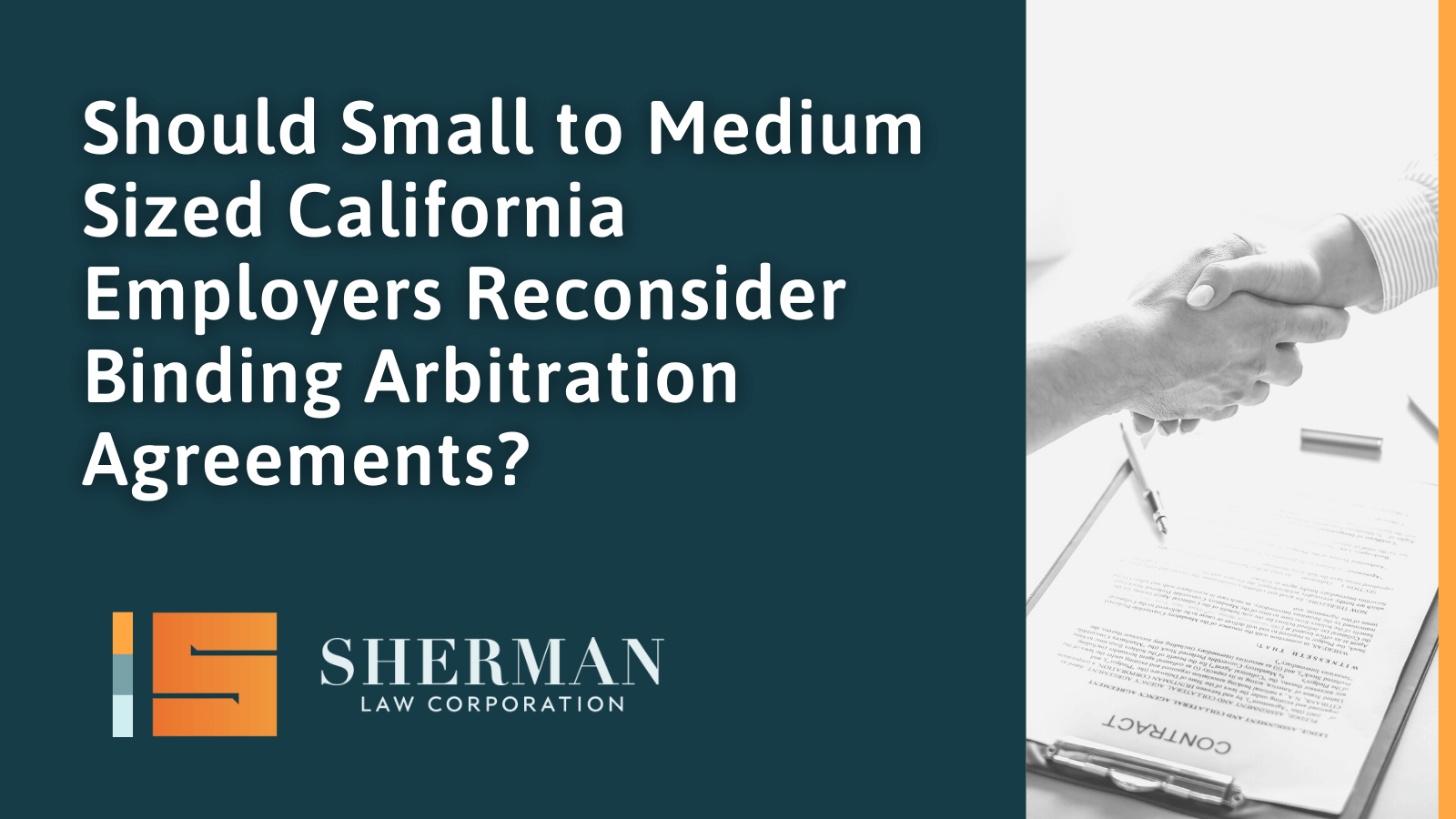
For the vast majority of my career in employment law, when I learned that an employer had an arbitration agreement with an employee who had just sued, I danced the jig. So long as the arbitration agreement did not contain numerous unconscionable terms, courts generally enforce them. Nothing makes judges happier than granting a motion to compel arbitration sending the case off their docket.
Since arbitrating a hard-fought employment dispute at the beginning of COVID, where my clients prevailed on all counts, including a cross-complaint that permitted them to recover from the employees over $200,000, I have reconsidered recommending arbitration to small to medium sized employers.
Let’s go over the pros and cons.
Why Binding Arbitration Agreements Could be Good for Small to Medium Sized Employers
First, and significantly, the case will be resolved by an arbitrator who is an experienced, highly educated employment attorney and not biased disinterested jurors who are anti-employer.
No run-away verdicts and outrageous punitive damage awards. The arbitrator must issue a reasoned decision supported by facts and the law.
The other “pros” include a quicker, less expensive process is no longer the case. The employer is required to pay all the costs and fees of the arbitrator and all proceedings before the arbitrator.
Arbitrators are charging upwards of $650/hour and even 1100/hour for their time. Plaintiffs’ counsel brings repeated discovery disputes to the arbitrator at great expense to the employer.
Indeed, I settled a bogus sexual harassment/race discrimination case for $125,000 because that was the cost to the employer for two weeks of arbitration and the award, despite the fact that the allegations were provably specious. Arbitration was meant to be quicker, but that, too, has not been the case.
My three-day arbitration at the beginning of COVID extended to over 21 days because the arbitrators allowed all evidence, no matter how irrelevant, because plaintiffs’ counsel threatened to overturn any award if his “material” evidence was excluded.
Plaintiffs’ counsel amended the employment claim through closing argument which required the defense to continue going down rabbit holes to defend each change at great expense.
Why Binding Arbitration Agreements Could be Bad for Small to Medium Sized Employers
One of the biggest cons against arbitration is that arbitrators like to “split the baby,” meaning award something to the plaintiff. There is a glut of arbitrators looking to be retained so if they “split the baby,” then everyone should be happy.
However, most employment cases involve claims that have an attorneys’ fee provision. If the plaintiff recovers $1 on the claim, s/he recovers all reasonable attorneys’ fees related to that claim. By splitting the baby, plaintiff’s counsel may get a low recovery, but will get a windfall in attorneys’ fees that will devastate the employer.
Contact Lisa Sherman
Based on the foregoing, my small to medium sized employers are rethinking binding arbitration. Since the majority of employment cases resolve at some point prior to trial/arbitration, the time drag in the court system allows them to save money to settle the cases and fund the defense.
For more information on arbitration agreements, feel free to contact Lisa Sherman at lisa@sherm-law.com or (323) 488-2087.




